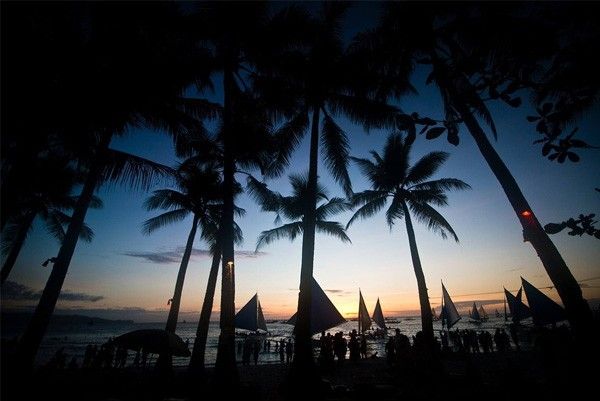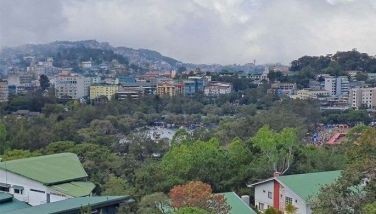‘Boracay resort owners skirt environment compliance through local execs’

MANILA, Philippines — A large number of resort owners – mostly the small ones – managed to get away with non-compliance of environmental requirements in the world-class Boracay island primarily because they are relatives of local officials who allow them to operate in the island.
“It is not just the sewer problem, but there are bigger problems. Many business establishments there are run by locals (who) are relatives of local officials in Malay. That is the reason (why they could not prohibit them),” Orlando Sacay, a pioneer of Boracay for several decades, revealed to The STAR.
The former owner of Waling-Waling Beach Hotel in Station 1, who has since transferred to Coron island in Palawan, could not give a specific figure, however, but estimated that “50 to 60 percent” of the total number of resort owners are locals, compared to a handful of huge foreign investors.
According to Sacay, these “small establishments” – which comprise a huge chunk of resorts and restaurants in the municipality of Malay in Aklan province – are “not connected with the central sewer system” and whose “source of main water is in fact just beside a septic tank.”
“The problem of Boracay comes from the fact that there are 3,000 lot owners making it difficult to enforce regulation and considering that many are relatives of local government officials. They got away with not complying with regulations,” he said.
Sacay issued the statement following the threat of President Duterte to close down Boracay in six months’ time should the Department of Environment and Natural Resources (DENR), along with the local resort owners, fail to fix the island-resort’s long overdue problem of pollution.
“It should be a wakeup call to those responsible for protecting the environment of the island,” he said. “During my time in Boracay, we tried hard with only limited success due to the lack of support from the government who should be responsible for enforcing environmental laws.”
Meanwhile, an administration lawmaker has offered unsolicited advice to the island’s local officials and resort owners to get their act together and practice the “garbage in, garbage out” policy in dealing with waste.
Samar Rep. Edgar Sarmiento said that for such a small island, that kind of policy should be “strictly observed, even for organic wastes, including human excrement.”
“A zero garbage and waste retention policy should be observed on these small island resorts because there is really no space for them to handle large volumes of garbage generated by tourists,” he pointed out.
“They can impose additional fees on tourists to finance the regular collection of garbage and organic wastes which can be transported to mainland Panay using properly sealed barges. Quality of tourists should prevail over quantity,” Sarmiento stressed.
According to him, this will allow local officials and resort owners – who were given by President Duterte six months to fix the problem or face shutdown – to “properly deal with waste and sewage problem without causing too much financial burden on our LGUs.”
Sarmiento said Boracay descended into its present condition primarily because of the negligence and lapses of persons supposed to be imposing the environmental laws in the resort-island known for its white powdery sand beach, pristine waters and festive nightlife.
His House Resolution 1087, which exposed the sordid and filthy state of Boracay island, prompted the House committee on tourism to hold hearings last month to determine necessary government actions to prevent the deterioration of tourist spots like Boracay.
The tourism panel headed by Leyte Rep. Lucy Torres-Gomez heard proposals that seek to establish a roadmap to ensure the sustainability of the country’s popular tourist destinations, including Boracay.
Sarmiento hopes the six-month ultimatum Duterte gave to the DENR under Secretary Roy Cimatu will result in the implementation of measures that should have been done years ago.
“We really appreciate President Duterte’s concern over the rapid decline of Boracay because there is really a need to institute swift and drastic steps to save the island,” he said.
“Hopefully, the hard lessons we are learning now from the situation in Boracay will help avert similar crisis in other premier tourist destinations in the country,” Sarmiento added.
He lauded Cimatu’s decision to close down at least 300 establishments in Boracay for not having the proper wastewater disposal facilities but stressed that the DENR chief should also demand accountability from responsible environment officials.
Sarmiento also pointed out that while local officials understandably want to squeeze every economic opportunity offered by booming tourism, Duterte’s threat to close it down should serve as fair warning for them to step up efforts to ensure that all kinds of waste generated in the island are properly contained and disposed of.
- Latest
- Trending



























